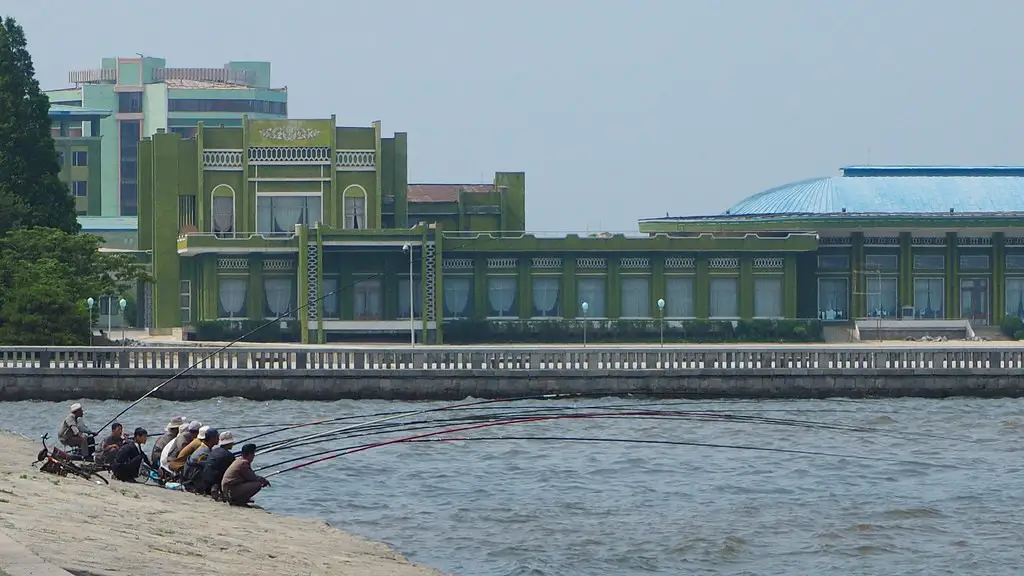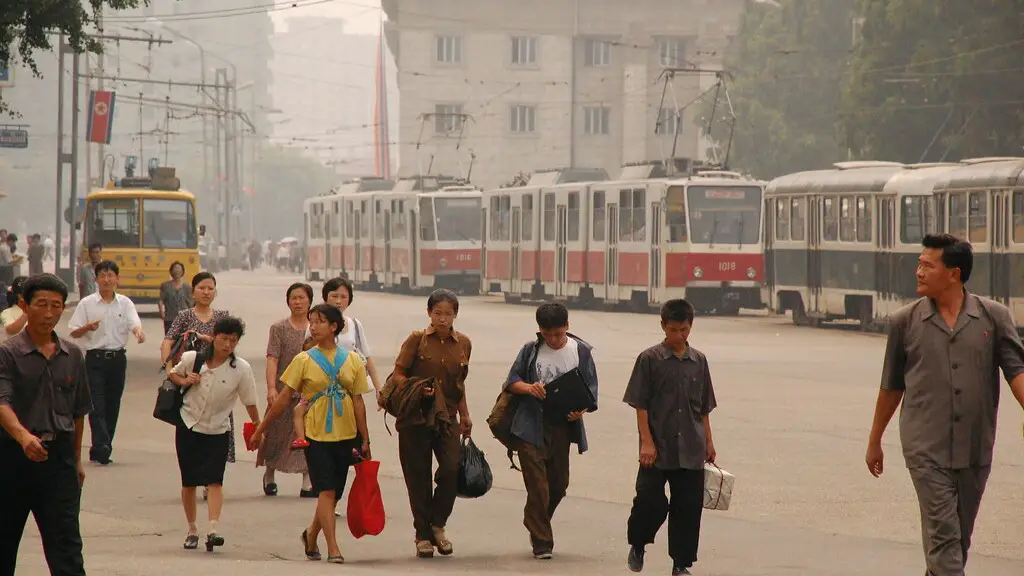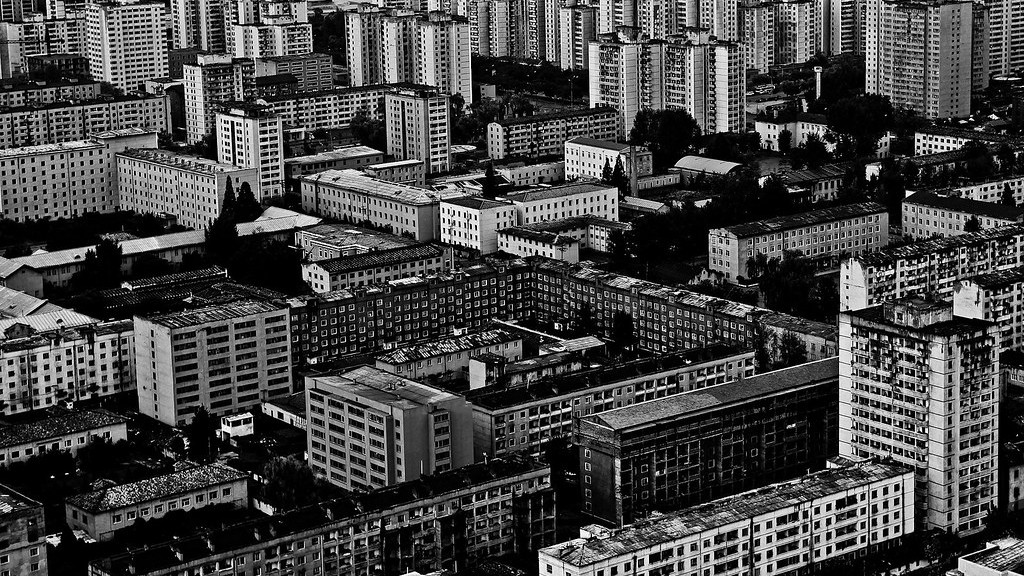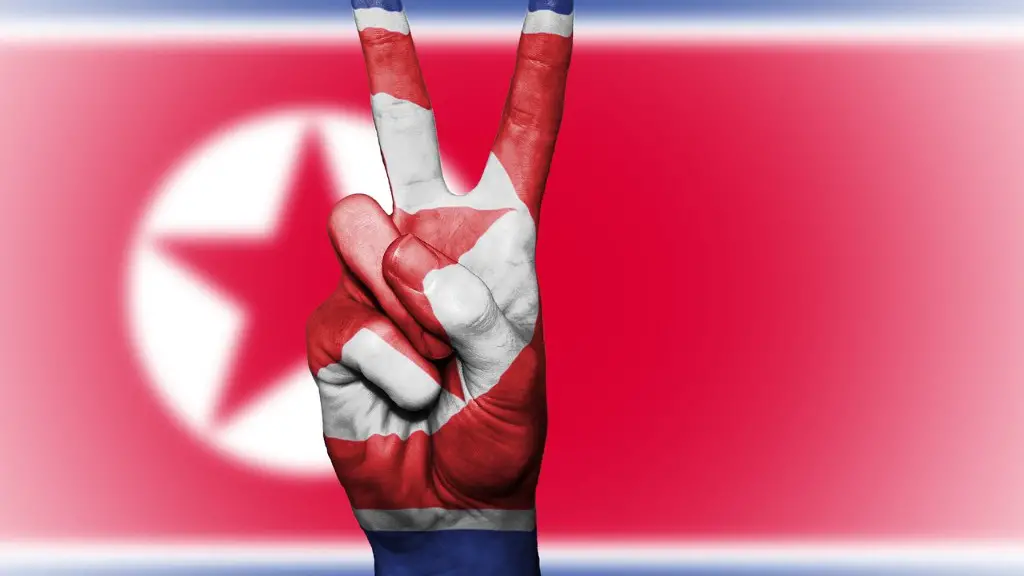Overview
North Korea is a country where the government holds almost total control over the lives of its citizens.
The rulers maintain their power through a variety of mechanisms, including by enacting strict laws and regulations that dictate nearly every aspect of people’s lives.
These laws and regulations range from where citizens are allowed to live and how to dress, to what jobs they can have and what information they are allowed access to.
The rules exist to ensure that all citizens live within the bounds set by the government and will be met with severe punishment if broken.
In North Korea, laws and regulations are strictly enforced, and the country is known as one of the most authoritarian regimes in the world.
Government Regulations
The North Korean government has enacted a number of rules and regulations to ensure their citizens remain compliant to their wishes and prevented from challenging their authority.
One of the most prominent and restrictive rules is the country’s travel ban, which places restrictions and limits on who is allowed to travel within the country, as well as to and from foreign destinations.
In addition, citizens are not allowed to leave the country without prior permission from the government, regardless of their purpose.
Those who break this rule face severe punishment, including imprisonment and hard labor.
In addition, citizens are expected to adhere to a strict dress code which includes the wearing of Kim Il Sung badges, displaying loyalty to the country.
The government also exerts control over their citizens’ communications, with citizens only able to access government-approved and censored information from the internet.
Enforcement of Rules
The North Korean government is known for its strict enforcement of its rules and regulations.
The government employs a large network of secret police and spies in order to monitor its citizens and ensure any violations of the law are reported and dealt with accordingly.
A number of government-run agencies including the Ministry of State Security are responsible for implementing these regulations and punishing those who disobey them.
These punishments range from fines and imprisonment, to hard labor, torture and execution in certain cases.
The government also makes extensive use of propaganda and ‘re-education’ camps to instill loyalty to the regime, and to ensure its citizens remain compliant to the law.
Political Rights
In North Korea, all power is concentrated in the hands of the Supreme Leader Kim Jong Un.
The people of North Korea have no political representation, and the government does not allow for any political opposition or public dissent.
Any citizen who is seen to be dissenting against the government or its laws is subject to arrest, imprisonment and enforced re-education, and can even face execution in some cases.
The government also has a complete monopoly on the media, with citizens having limited access only to state-run news outlets and approved media.
This tight control over the media and strict repression of freedom of speech serves to ensure that the people of North Korea are only exposed to propaganda and are kept in the dark about international news and events.
Human Rights Abuses
North Korea has long been recognized as a severe violator of human rights, as well as a leading abuser of international humanitarian law.
The government is known to use torture, forced labour and other cruel, inhuman or degrading treatment towards its citizens, with women and minority groups particularly at risk of abuse.
The government is also known to operate a network of prison camps, where inmates are subjected to conditions that are widely recognized as amounting to human rights abuses.
In addition, executions are regularly used as a form of punishment for political crimes, with prisoners often denied fundamental legal rights.
The North Korean government has also been accused of committing war crimes against its own people, including through the recruitment of child soldiers and targeting of civilian populations during military operations.
Foreign Diplomatic Relations
The North Korean government has a long history of isolating itself from the international community, particularly when it comes to diplomatic relations.
The government has refused to recognize several international human rights treaties and has criminalized contact with individuals from foreign countries.
In addition, it has refused to engage in meaningful diplomatic dialogue with other countries and has only recently begun to normalize relations with some of its neighbors.
The government has also been accused of using the diplomacy process in order to further its own interests, such as seeking out economic aid and military assistance.
Its refusal to cooperate with the international community has served to further isolate North Korea and deny its citizens access to the outside world.
International Sanctions
In response to the country’s human rights abuses, militarization and its nuclear program, several countries have imposed economic sanctions on North Korea.
These sanctions have included trade embargoes, asset freezes and other restrictions aimed at preventing the North Korean government from obtaining resources and materials that could be used in its nuclear program.
The sanctions have had a severe economic impact on the country and its people, with the economy contracting and poverty levels rising as a result.
In recent years, there has been a thawing of relations between North Korea and the international community, with some countries beginning to ease the sanctions in exchange for concessions from the North Korean government.
However, until the situation improves, these sanctions remain in place, in an effort to discourage the North Korean government from engaging in human rights abuses and other illegal activities.
Conclusion of Isolation
While the North Korean government continues to maintain tight control over its people, there have recently been signs of increased openness to the outside world.
In recent months, the government has taken steps to relax restrictions on foreign travel and internet access, as well as allowing access to some international news outlets.
However, it is unclear if these limited openings are indicative of a wider thaw in relations with the international community, or simply acts of isolationism.
The North Korean government’s human rights offenses, nuclear development and militarization remain a major concern for the international community, and until meaningful dialogue and diplomatic relations are established, it is unlikely that this issue will be resolved.





